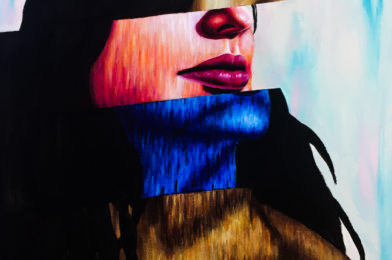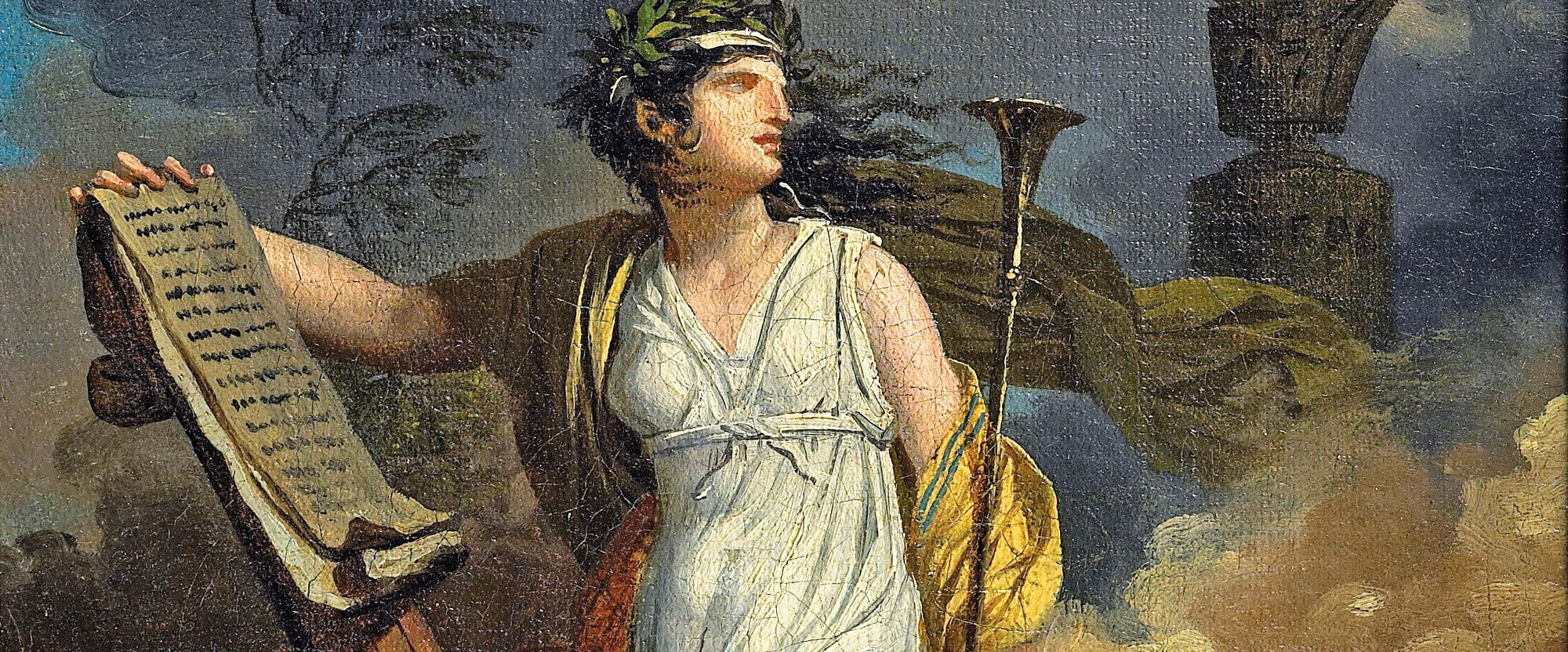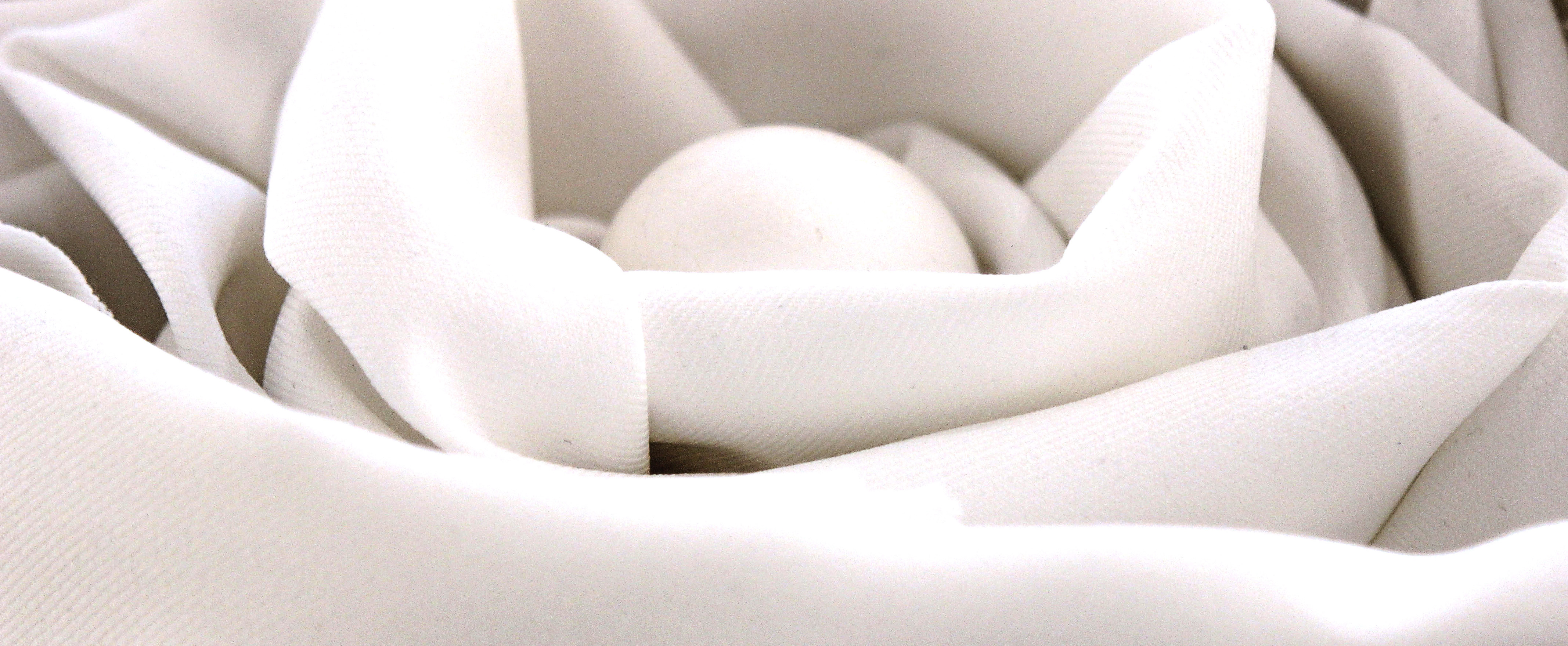David Wright is a writer and a musician. His work mostly falls under the category of Ekphrasis writing, a type of writing that is in conversation with another piece of art, anything from a painting to a piano performance. David Wright, having studied music with a focus on piano, wrote a book titled The Small Books of Bach that is filled with rich poetry that focuses mainly on the music and culture of Bach, along with commentary on the musical fanatics who have continued to play his music to this day. Two of our Parallax Editors, Parsa Sheikholeslami and Segolene Pihut, had a chance to sit down one-on-one with David and talk to him about his background in music, his beginnings as a writer and poet, and how the two art forms can be masterfully intertwined.
You initially studied music in college. Do you still play or perform music?
I do. When I switched from being a music major to a music minor, what I discovered is that music became much more about collaboration with other people and less about competition. It’s less about trying to be the best singer and more about the community of singers. And that was a wonderful shift. Ever since I graduated, I’ve become involved in choirs, as well as church music. For about six or seven years, I worked with a friend who was a composer, and he did a lot of choral works. We collaborated together on those. I did mostly the text, he would do mostly the music. But sometimes, just because I had enough of a musical background to be dangerous, I would make suggestions. And then he would explain to me why that wasn’t going to work. So yes, music has stayed as a part of my life. I love it.
Do you consider yourself a musician or a writer?
I’m a writer. I’m a writer, and a teacher. Those two things are pretty inexplicably bound together for me.
What do you think ekphrastic writing enables the writer to do that he wouldn’t be able to do with another type of writing?
All writing is responding to something else. There’s always an allusion to something in the world or to something that we invented. What’s interesting about ekphrasis is that if the work of art is vast and substantial, you’re entering a rich conversation that’s already been going on before you got there. It’s not like I look at a tree and I say “Oh! That’s a pretty tree,” but some person painted that tree and manipulated it on the canvas and did interesting things and had stuff to say about it. I get to enter into that and ask “Why did you say this? Why do you think that’s a tree? Look how you’ve reduced it to its shapes and its forms and its colors.” It’s the richness of the conversation you get to enter with another artist. I used to take students to the art institute every semester, when I taught in the Chicago area, and one of the things ekphrasis allowed them to do was to spin out of themselves into a larger world. Because we all write about ourselves too much, “I feel sad/love/angst about this,” right? Which is fine, you can write about that. But we sometimes neglect the larger, more textured, complicated world. When you spend 45 minutes looking at a painting, or listening to a piece of music, it’s going to spin you out of yourself in a way that might be good for us. And particularly for young writers. They get to enter that conversation. Ekphrasis offers that to them. Of course, they spin back in, what you think about that song, what you feel about that painting, is it going to be a part of what you write? But it’s changed, if you spun out into that object that’s on the wall, that was made with lots of layers of possibility. That’s why I like ekphrasis for myself, but also for teaching. It’s a useful thing to do. It can become too easy, or it can become a kind of a trick. And that’s when it becomes dangerous. I have a really good friend, a poet, Keith Ratzlaff, who wrote a whole book of poems called Dubious Angels, based on the engravings that Paul Klee did. Towards the end of his life Klee became obsessed with angels, and these bizarre engravings. Keith became obsessed with these prints, and wrote a whole book based on these. And he finished the book and he said “I wasn’t sure if I could write anymore without Paul Klee. Paul Klee was my drug.” He became worried he became too dependent on the art, and I was the same way about Bach. So it’s nice to have written some poems recently in the last year or two that don’t talk about Bach. It’s a relief.
Do you feel like writers have a responsibility to refer to the outside world in their works, rather than just their own inner workings?
Sure, absolutely. I think that all poems are full of conversations, and I wouldn’t want to limit those conversations to ones that feel intimate or that feel political. I wouldn’t want either one of those to be the extreme. One of the poets I love who writes about social and political matters is Carolyn Forché. Years ago she edited an anthology called Poetry of Witness. And what she tries to do in that anthology is collect poems by folks who’ve lived through situations of political extremity. And it goes all the way back to the beginning of the 20th century with the Armenian genocide and it comes up all the way to the first Gulf War, as the book was published in the mid-90s. And the topics refer to the movements of Women’s Rights and Civil rights, and it’s these poets really writing in response to situations of extremity. But what’s interesting is that the most interesting poems in that anthology don’t only respond in a kind of argumentative or political way, although they do do that, but they also talk about what’s it like to peel an orange in the midst of gunfire. What it’s like to try to nurse a child to sleep when you’re not sure that your home will even be there next Thursday. What it’s like to fall in love, and then think, I have to leave the country in exile. So the most interesting poets for me are the ones who keep both those realities meshed. They’re not just narcissistic or worried about their private life, but they’re also not so overwhelmed by the politics that they forget to be human. And at a time of political extremity, which it feels like during this election year, with Trump and what not, you feel like you want to fix the damn world. Frankly, poems probably aren’t the place to fix the damn world for the short term, though they might be for the long term. Shelly called poets “the unacknowledged legislators of humankind,” meaning they were actually dealing with the mechanisms that make people do and feel things. But they’re not acknowledged, and people don’t notice it.
Ekphrasis is a conversation between two different types of art. Do you think that, say if you write a poem about a painting, if the reader already knows the painting, is that going to be more limiting? Or leave more room for interpretation?
Ideally, I would want any poem I write to be musical and linguistically interesting enough that nobody would need to see anything else to enjoy it. Ideally. Except that’s not how language works. Language lives in the world and carries with it all the places that it’s been. And all the ways that it’s been used. So, even as the poet, I’m not in charge of the language completely. It’s going to go in ways that are not in my control. So ideally I would want my poem to be musically and linguistically interesting enough that you wouldn’t need to understand anything that it refers to. But, how much richer is it if someone brings a knowledge of something that poem is doing? And I would hope that I wouldn’t just transcribe the piece of music or describe the painting. I think the worst ekphrastic poems are those that simply describe the work. How many people think of poetry as a static description of something? I want poems that can do all the things poem can do. Or at least most of them. At once. Simply transcribing an event or an experience, that’s maybe journalism? Not even very good journalism? Maybe it’s a diary entry? But it’s not a poem, right? Because all that other textured stuff we value isn’t there. In the poem I read last night [at a reading at Idyllwild Arts Academy] about a Chagall painting, it wasn’t in the room. I didn’t try to describe it to you. I think the poem was enough about the artistic process, about temptation, about despair, about what art can do, and you don’t have to see that painting. Of course, if you’ve seen that painting it’s about, or other paintings by Chagall, you might be able to interpret more. But I don’t think you have to. How do you feel about it, Parsa? Do you think ekphrastic poetry is limited by its connection to this other work of art in the world?
My personal opinion is that, if the poem is a good poem, maybe knowing the piece that’s in it is going to make it limiting. If the definition of a poem is about making connections, and there is some established piece it’s referring to, if you don’t know the painting specifically, you can have any type of interpretation from the poem.
But I don’t want anybody to have any type of interpretation of the poem, because then they don’t need my poem. Do I want you to have deep feelings? Go have them, you don’t need my poem. I want you to take me seriously enough to be moved or shaped or pissed or some other way you’re affected by the language on the page.
Well yeah, for sure, but I feel like, there’s a general mood of the poem and sometimes there are going to be some descriptions of the work of art that you’re writing about, but I’m just talking about say “there’s a yellow bride,” there’s an actual yellow bride in the painting, but if I don’t know the painting, I’m going to have a certain type of limitation.
But isn’t “yellow bride” a weird and interesting thing? All on its own? When are you going to write the yellow bride poem? Why is she wearing yellow? Don’t brides usually wear white? So why is she yellow? What’s that about? Has she had that dress for so long that it’s been yellowed from the sun? Was it a heirloom, her grandmother’s dress? But you don’t know, right? I get what you’re saying, fidelity to the painting can be trouble, both for the reader and the writer. Trying to be too faithful to it. At the same time, if the writer is doing her work, she’s going to have something interesting to say. And she’s going to describe the yellow bride as “a yellow bride floating upside down under the green moon” which could happen, in a Chagall painting, which is why Chagall is interesting. Which is why I want to write poems about it.
One of my friends who is into making movies told me that he is jealous of musicians, because of the immediate relationship they make with the audience. So, as a person who has experienced both being a musician and a writer, can you describe a little bit of what type of relationship you make with your audience?
It’s hard, because you can’t be in charge of your audience, no matter who you are. You think you can. You think you can write this book, or sing this song, or you’ll make this film, and somehow be in control of how people receive it. And you can’t. The interesting part about live performance is that you can experience and feed off of or respond to the way your audience responds to you. The piece of music isn’t complete until it is received by someone. Now, that’s not always true. How do we receive most music? Up here in Idyllwild it’s unique because there’s a concert every other night. You can walk by the practice rooms, all day, every day, and hear someone playing. But most of the music we receive is, where? Recorded. So it’s left very little space for us to enter into the dialogue of the piece. With a poem, you absolutely don’t get to see how someone experiences your poem 95% of the time. With poetry, you make the book, put the book in the world, someone reads it and that’s that. And their reading experience is not something you have any control over. You’re not in charge of that exchange with the reader once you let the poem go into the world. What’s fun about doing something like my poetry reading last night, is that you are in charge again for a second. And you can say, oh, I think these folks are a little sleepy. I’m going to read a funny poem now. Oh, these folks liked the last poem, I’m going to read another poem like that. That’s a really rewarding experience. And that’s why I love to go out and actually interact with people. It’s like taking comedy on the road, you get to see which pieces affect people in a certain way. And there’s some poems I don’t read aloud, because they’re really dense, they’re really elusive and full of language play, that doesn’t really translate as well to the ear as it does to the eye. And you can’t expect someone to grab all of that at a poetry reading, there’s this flood of words coming at you, very hard. Some readings you can really hear what’s going on, and with other times there’s–have you experienced “poet voice”? You know poet voice? [Speaking in a slow, monotone voice.] I’m going to read… my poem right now…it’s going to be…..just like this….. It lulls you completely to sleep. You look at the page and you’re like “This is really gorgeous and full of energy! What happened? When she read this, she fell into poet voice, and I’ve lost my mind.”
You said some poetry is better suited to the page. Do you think it’s a missed opportunity when poets choose not to do readings?
I think two things about that. First, that the mechanics of selling poetry in America right now, is that you sell poetry hand-to-hand. Most people don’t buy poems. They don’t buy books of poems. So what you have to do, is go to schools and bookshops and libraries and give readings. And when you do that, people go, “This is kind of cool! I’d like to buy a book.” So that’s how most books of poems are sold. There’s just that pragmatic piece about it. But yeah, I feel like a lot of poets miss an opportunity of what poems will do when they’re in someone else’s body. Robert Hass says that “writing a poem is putting your breath into the body of another person” and he says that it’s a very intimate thing. And I think he’s right about that. So reading a poem out loud is one way of experiencing that. I’ll tell you something else that’s cool is if you have someone else read one of your poems aloud. There are choices you made, and resonances that happen that you wouldn’t know about. Which is why I had folks jump up and do the four-part poem I read last night with me [at the Idyllwild Arts reading]. Because, I don’t know what that poem sounds like unless I get three people to help me out. And even then, it’d have been more fun if I wasn’t the one doing my part, but got to hear four other people do it. So in that way it’s a little like my experience of writing music. The song isn’t complete until someone else sings it.
Tagged : art / Bach / David Wright / Gulf War / Idyllwild Arts Academy / Paul Klee / Robert Hass / Small Books of Bach / write / writer / writers / writing


